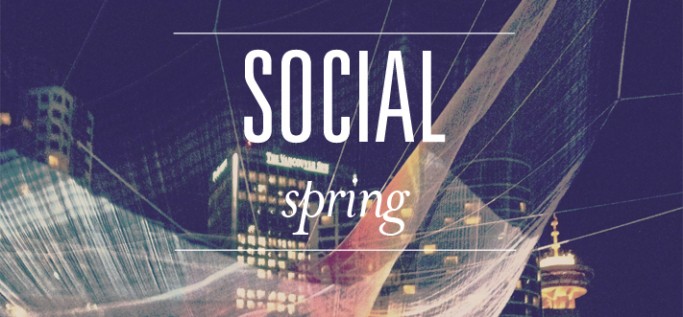
The Best Thing About TED’s Visit To Vancouver
While the rest of Canada slowly thaws, this year’s season of new beginnings has proven to be an extra special one in the city of Vancouver. For those of us working towards building a more sustainable future, we felt blessed to be hosting the TED Conference in our hometown. Whether or not one attended the talks themselves, the air held a palpable buzz of great minds and inspirational conversations during the week-long conference mid-March. Vancouverites were able to watch the talks from a number of live broadcasts throughout the city. One of the venues, Canada Place, streamed the talks outside, accompanied by a floating art installation that can only be explained visually. As is always the case with TED, the talks roused emotion in audiences and hopefully inspired some to take action.
For me, the single greatest reward of TED being in Vancouver was to meet Jacqueline Novogratz, Founder of the Acumen, one of the world’s largest funds dedicated to social impact investment. She was not speaking at TED this year, but her husband, Chris Anderson, is TED’s Curator (world’s best power couple?). Thus, she had agreed to attend a Q and A alongside entrepreneur Kevin Royes, organized by the Vancouver chapter of Acumen Plus, and hosted at SFU’s Segal Graduate School of Business.
Months ago, after learning about the event, myself and several other instituteB colleagues jumped at the opportunity to hear Jacqueline speak. Though not the only fund of its kind in the world, Acumen is perhaps the most illustrious: a slick website, compelling storytelling, polished PR, and strategic partnerships all have culminated to its celebration among millenials such as myself. At the forefront of it all, leading the charge, is Jacqueline. A woman who, shortly after beginning her career in banking, chose a much different path and has invested her life’s work into tackling the world’s most complex problems.
In what was an intimate event (the sold-out room held a mere few hundred people), Jacqueline spoke candidly about the enviable opportunities for our generation to make change, the importance of young people collaborating with more experienced generations, and the necessary solicitation of a new definition of success. “…you all have opportunities as social entrepreneurs to be thinking about those kinds of solutions that really humanize low income people. When we see great innovation happening for the web and we see those apps being sold for multiples, we’re not seeing the kind of innovation that we need to get water to the very poor, even in this country”, she said.
She clearly possesses something ineffable that leaders are often missing, or rarely expose: a marked depth and something like a sense of humility combined with vulnerability. Yet, her mind was razor sharp and one could easily see how she is one of the most innovative entrepreneurs we know of while, at the same time, being one of the most introspective. These qualities really shone through near the end of the event when, in response to the question, ‘what would you tell your twenty-something year-old self?’, she responded by describing her first trip to the Ivory Coast when she was 25 and her unpreparedness for what lay waiting. “…Sometimes you allow yourself to be in really bad situations for too long. Because you just want to show how strong you are. And it can take you a long time to recover from that. So, sometimes, when the world is just shredding you, you should take a moment and step back and say ‘is this helping me to help the world?’ And it might just be that this is a really rough patch, and ‘I’m going to get through it’. But it might be that you start to feel yourself getting smaller and smaller and smaller and that takes a long time to reverse.”
Though her outlook on life may be serious, she also showed us her sense of humour, insisting that our generation is deeper and more capable than we often lead on to be. “People must want to see more than cat videos”, she said, imploring us in the audience to use social media as a tool to celebrate those who are making change. According to Jacqueline Novogratz, the world could really benefit from sharing more inspiring stories. Here at institute B, we happen to agree with her.
Written by Oona Eager with inspiration from Mehran Najafi.
